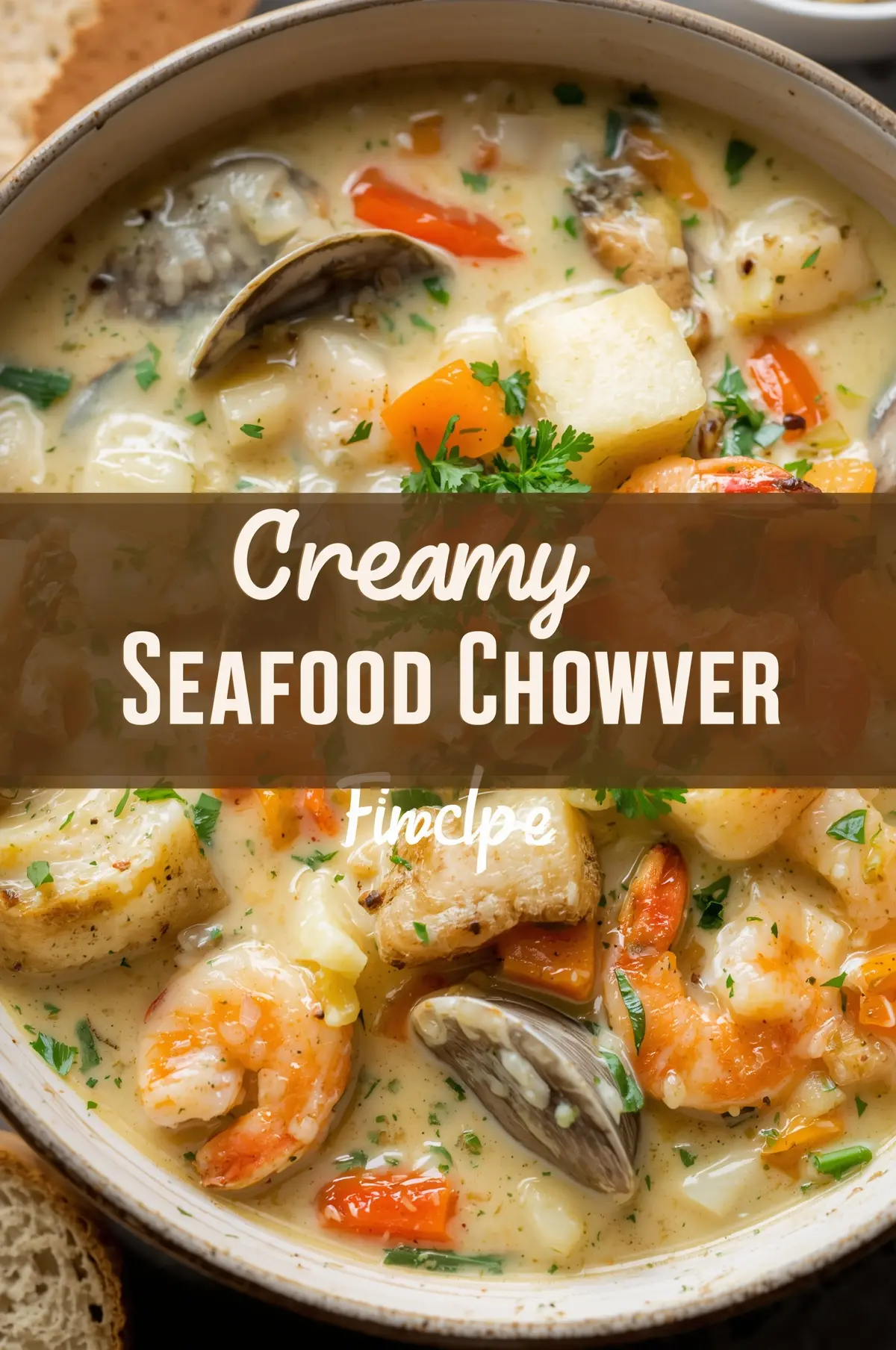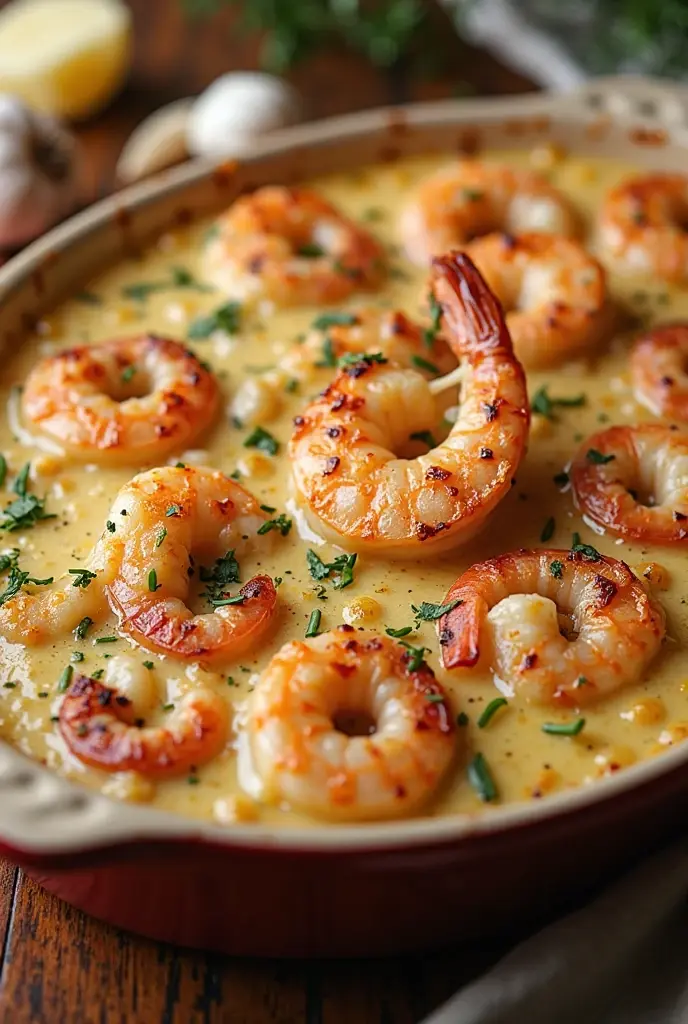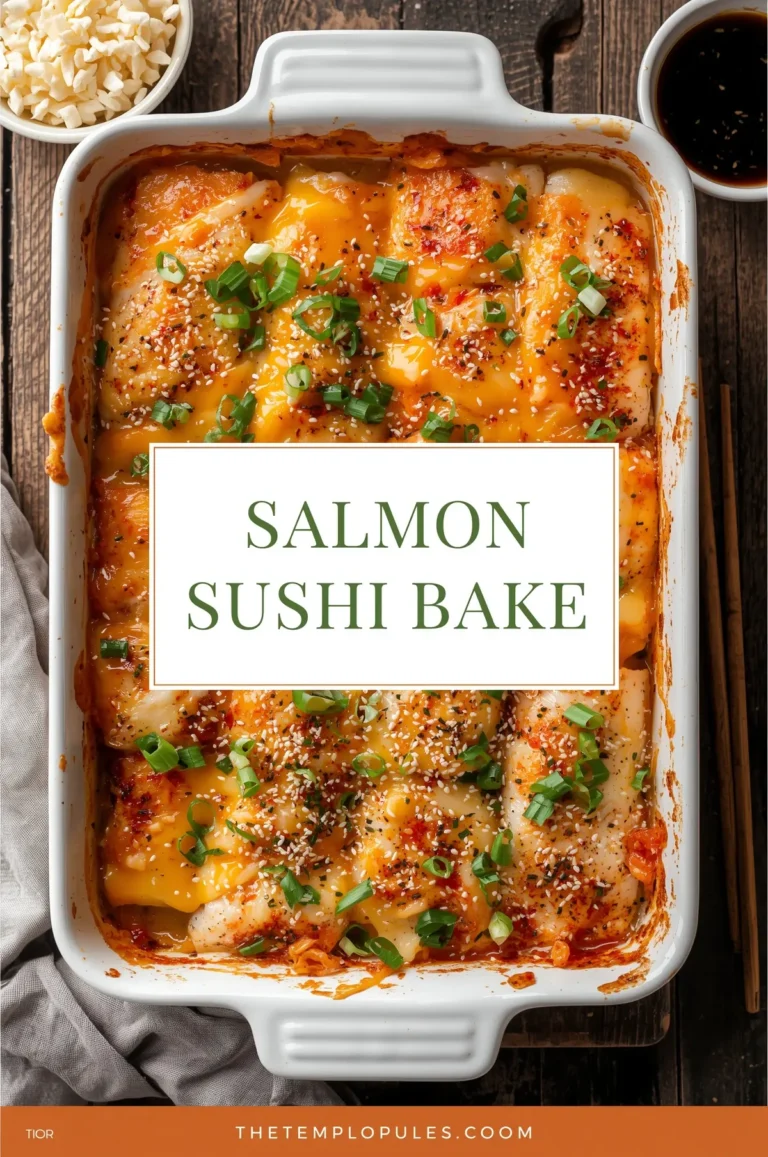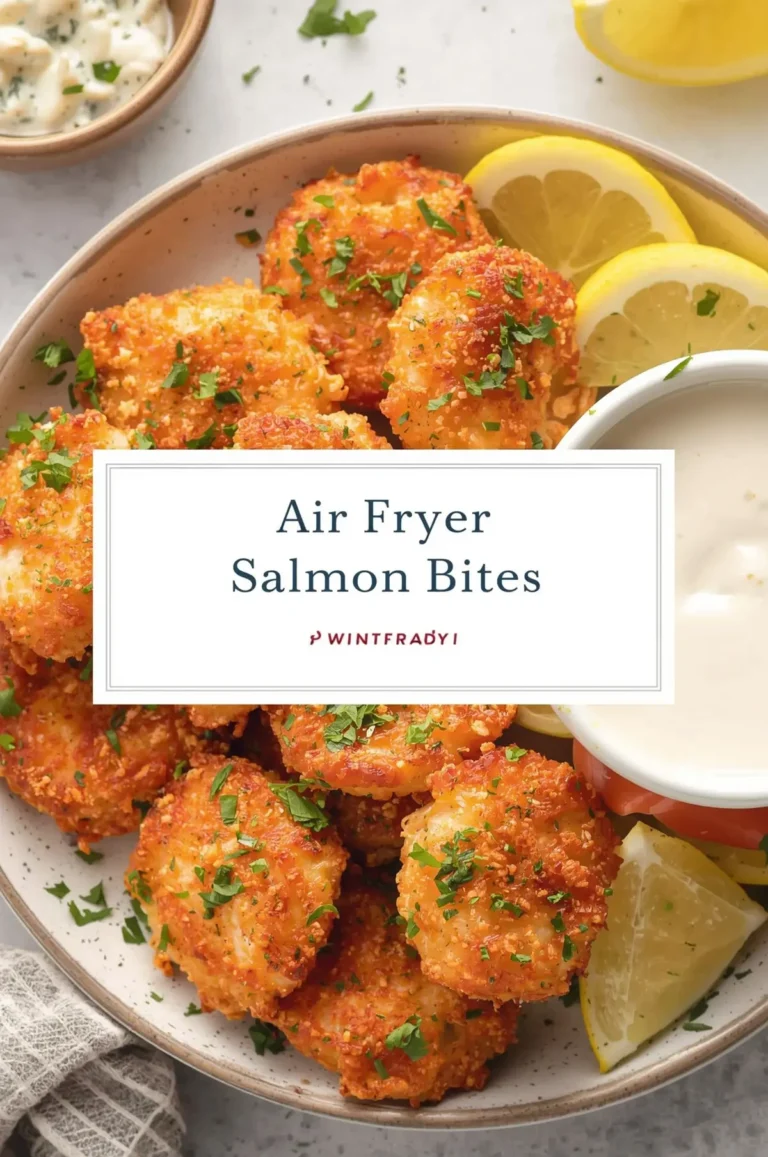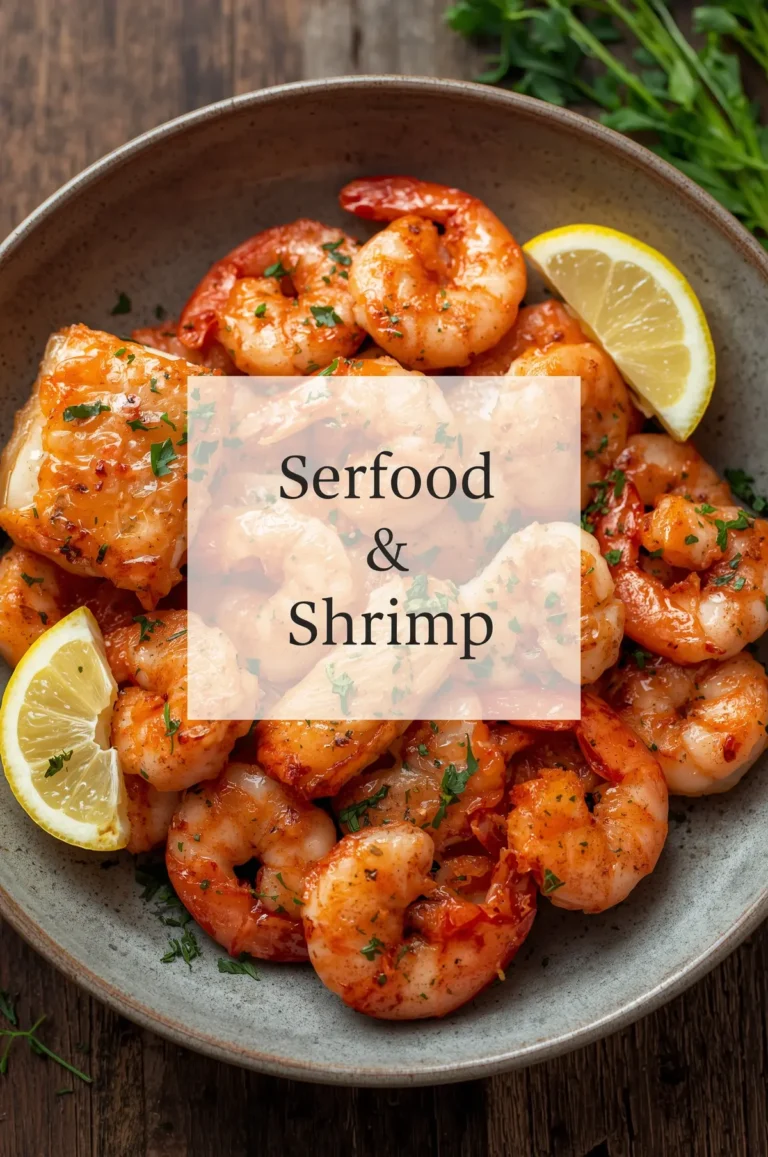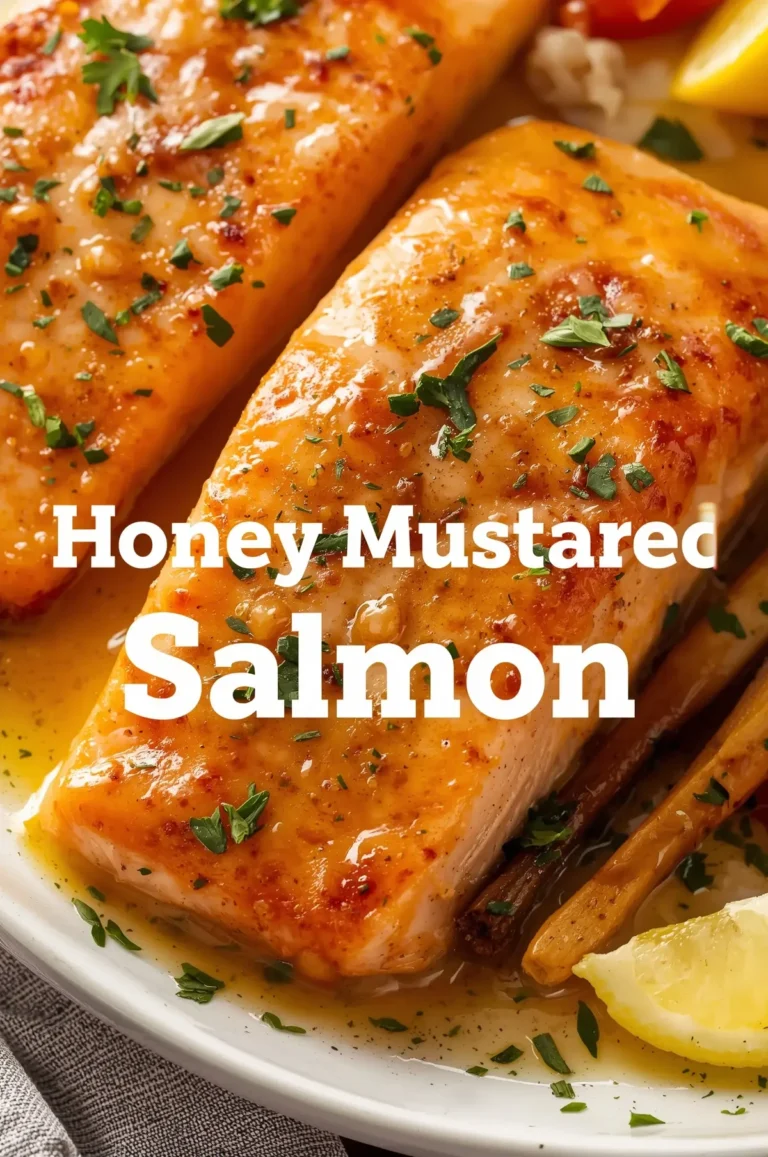Creamy Seafood Chowder: A Classic Recipe for a Hearty and Comforting Meal
Picture this: steam rising from your favorite bowl while the first spoonful of rich, velvety chowder delivers an explosion of oceanic flavors. Your kitchen fills with the aromatic blend of fresh seafood, herbs, and cream that instantly transforms any ordinary evening into something extraordinary. This moment transcends simple nourishment—it connects you to generations of coastal cooks who understood that the perfect creamy seafood chowder represents more than sustenance. It embodies warmth, tradition, and the comforting embrace your soul craves during life’s challenging moments.
Table of Contents
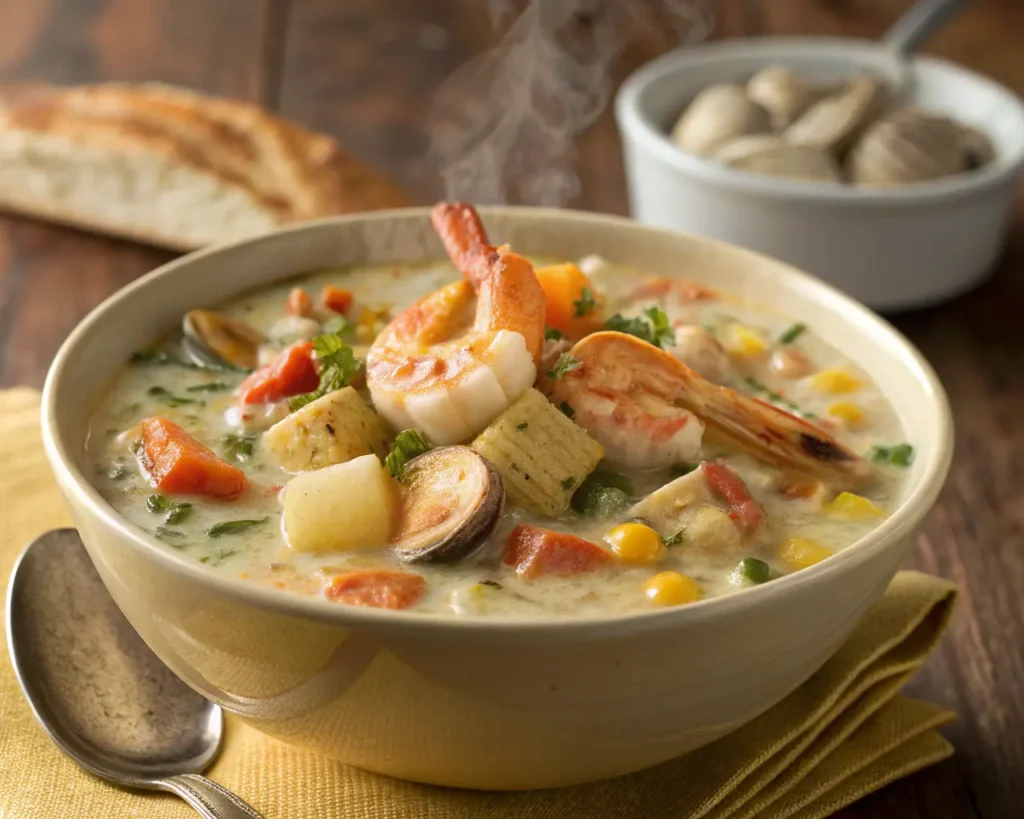
The Heritage Behind Your Bowl of Creamy Seafood Chowder
New England’s Maritime Legacy
Your creamy seafood chowder carries the DNA of 18th-century New England fishermen who created hearty meals from their daily catch. These resourceful cooks discovered that combining fresh seafood with available vegetables and dairy created a satisfying meal that could feed families while stretching precious ingredients. What began as necessity evolved into culinary artistry that continues gracing tables across America.
The word “chowder” itself derives from the French “chaudière,” referring to the large cauldron fishermen used aboard their vessels. You’re participating in a tradition that spans centuries when you prepare this beloved dish.
Modern Evolution of Traditional Recipes
Today’s creamy seafood chowder maintains its authentic roots while embracing contemporary cooking techniques. You benefit from improved ingredient availability, better understanding of food safety, and refined methods that enhance flavors while preserving the dish’s rustic charm.
Essential Ingredients for Your Perfect Creamy Seafood Chowder
Fresh Seafood Selection Guide
Your chowder’s success depends heavily on seafood quality. Choose firm, white fish like cod or haddock as your foundation—these varieties maintain their texture during cooking while providing mild flavors that complement other ingredients. Add sweet, tender shrimp and plump scallops for textural variety.
| Seafood Type | Quantity (serves 6) | Preparation Notes |
|---|---|---|
| Fresh Cod or Haddock | 1 lb, cubed | Remove skin, cut into 1-inch pieces |
| Raw Shrimp | 1/2 lb, peeled | Deveined, tail-off |
| Sea Scallops | 1/2 lb | Side muscle removed, halved |
| Fresh Clams | 1 cup chopped | Reserve juice for enhanced flavor |
Building Your Flavor Foundation
Your chowder’s depth comes from carefully selected aromatics and base ingredients. Thick-cut bacon provides smoky richness, while the holy trinity of onions, celery, and carrots creates aromatic complexity.
| Ingredient | Quantity | Purpose |
|---|---|---|
| Thick-cut Bacon | 6 strips, diced | Flavor base, rendered fat |
| Yellow Onion | 1 large, diced | Aromatic foundation |
| Celery | 3 stalks, diced | Texture, subtle flavor |
| Yukon Gold Potatoes | 2 lbs, cubed | Heartiness, natural thickening |
| Heavy Cream | 2 cups | Rich, velvety texture |
| Seafood Stock | 4 cups | Concentrated ocean flavor |
Your Step-by-Step Creamy Seafood Chowder Recipe
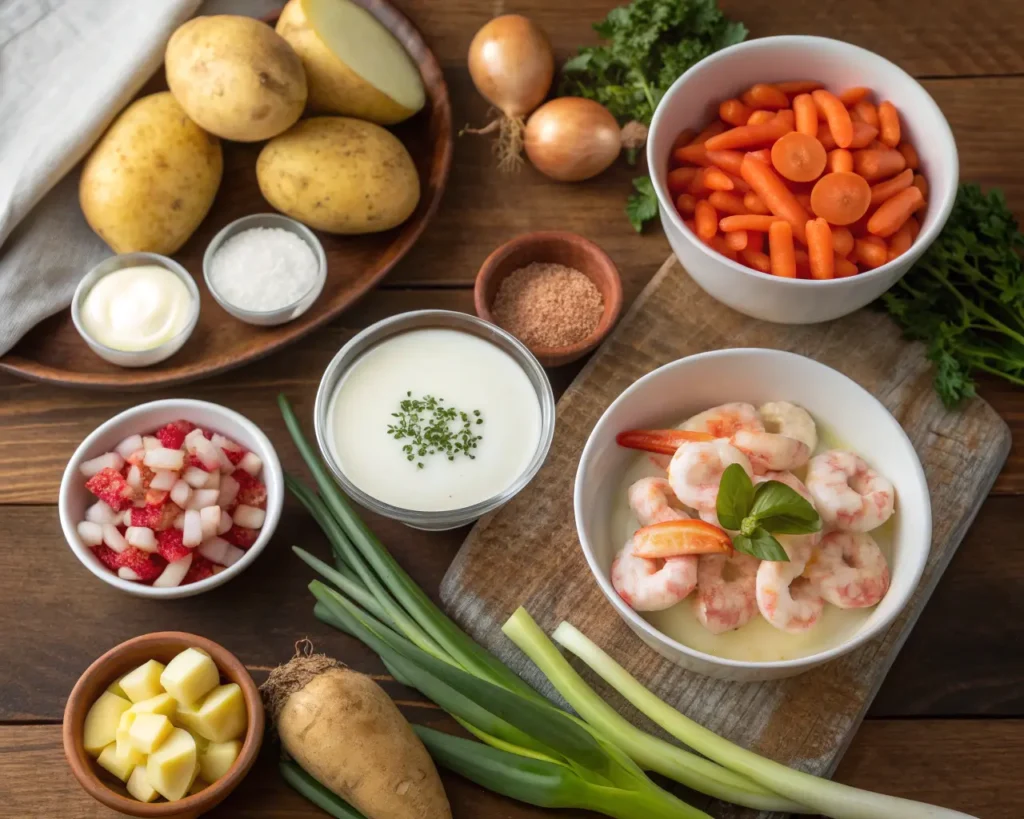
Phase One: Preparation Excellence
Begin by preparing all ingredients before heating your pot. Pat seafood completely dry—excess moisture prevents proper browning and dilutes flavors. Cut fish into uniform pieces ensuring even cooking throughout your chowder.
Dice vegetables consistently for uniform cooking. Your onions should be translucent when finished, celery should retain slight bite, and potatoes must cook thoroughly without becoming mushy.
Phase Two: Building Incredible Flavor
Start with rendering bacon over medium heat until crispy edges form. Reserve these golden pieces for garnish while keeping two tablespoons of rendered fat in your pot. This bacon fat becomes your flavor foundation.
Add diced onions to the warm fat, cooking until they become translucent and aromatic—approximately five minutes. Introduce celery and carrots, cooking an additional three minutes until they begin softening. Finally, add minced garlic for thirty seconds, being careful not to burn this delicate ingredient.
Phase Three: Creating Your Creamy Base
Sprinkle flour over your sautéed vegetables, stirring constantly for two minutes. This cooking process eliminates the raw flour taste while creating your thickening agent. Gradually whisk in seafood stock, ensuring no lumps form.
Add cubed potatoes along with bay leaves, fresh thyme, salt, and pepper. Simmer this mixture until potatoes become fork-tender, typically twelve to fifteen minutes.
Phase Four: Incorporating Seafood Perfection
Timing becomes crucial during this phase. Add firmer fish first, allowing three minutes of gentle simmering. Follow with scallops, cooking an additional two minutes. Finally, incorporate shrimp and clams, cooking just until shrimp turn pink and clams heat through.
Overcooking seafood results in rubbery textures that diminish your chowder’s appeal. Watch carefully and remove from heat immediately when seafood reaches proper doneness.
Phase Five: The Creamy Finish
Reduce heat to low before adding dairy products. Gradually stir in heavy cream and milk, heating gently without allowing the mixture to boil. Boiling causes dairy to curdle, ruining your chowder’s smooth texture.
Taste and adjust seasoning as needed. Your finished chowder should balance oceanic flavors with creamy richness while maintaining proper consistency.
Professional Tips for Chowder Excellence
Texture Mastery Techniques
Achieving perfect consistency requires understanding several key principles. Never allow your chowder to boil after adding cream—maintain gentle heat to prevent curdling. If your chowder becomes too thin, mash some potatoes against the pot’s side for natural thickening.
For overly thick chowder, gradually add warm stock or additional cream until reaching desired consistency. Remember that chowder continues thickening as it cools, so err slightly on the thinner side while hot.
Flavor Enhancement Secrets
Layer your seasonings throughout the cooking process rather than adding everything at once. Salt the vegetables while sautéing, season the stock before adding seafood, and perform final adjustments after incorporating cream.
Consider these flavor boosters for exceptional results:
- Add white wine during vegetable sauté for depth
- Include clam juice for enhanced oceanic essence
- Fresh herbs provide brighter flavors than dried alternatives
- A splash of lemon juice brightens the finished dish
Serving Your Masterpiece
Traditional Accompaniments
Present your creamy seafood chowder alongside crusty sourdough bread for dipping. Oyster crackers provide classic textural contrast, while fresh chives or parsley add color and freshness.
Top individual bowls with reserved crispy bacon bits and a light dusting of paprika for visual appeal.
Modern Presentation Ideas
Consider serving your chowder in hollowed bread bowls for impressive presentation. Garnish with microgreens, a drizzle of herb oil, or toasted seafood for restaurant-quality plating.
Storage and Reheating Guidelines
Store leftover chowder in refrigerator containers for up to four days. When reheating, use gentle heat and stir frequently to prevent scorching. Add small amounts of stock or cream if the chowder has thickened during storage.
Avoid freezing cream-based chowders as dairy products separate during the freezing process, resulting in unappetizing textures when thawed.
Nutritional Benefits of Your Homemade Chowder
Your creamy seafood chowder provides excellent protein from multiple seafood sources while delivering essential omega-3 fatty acids. The vegetable content contributes fiber, vitamins, and minerals that support overall health.
Each serving contains approximately 485 calories with 32 grams of high-quality protein, making this dish both satisfying and nutritionally valuable.
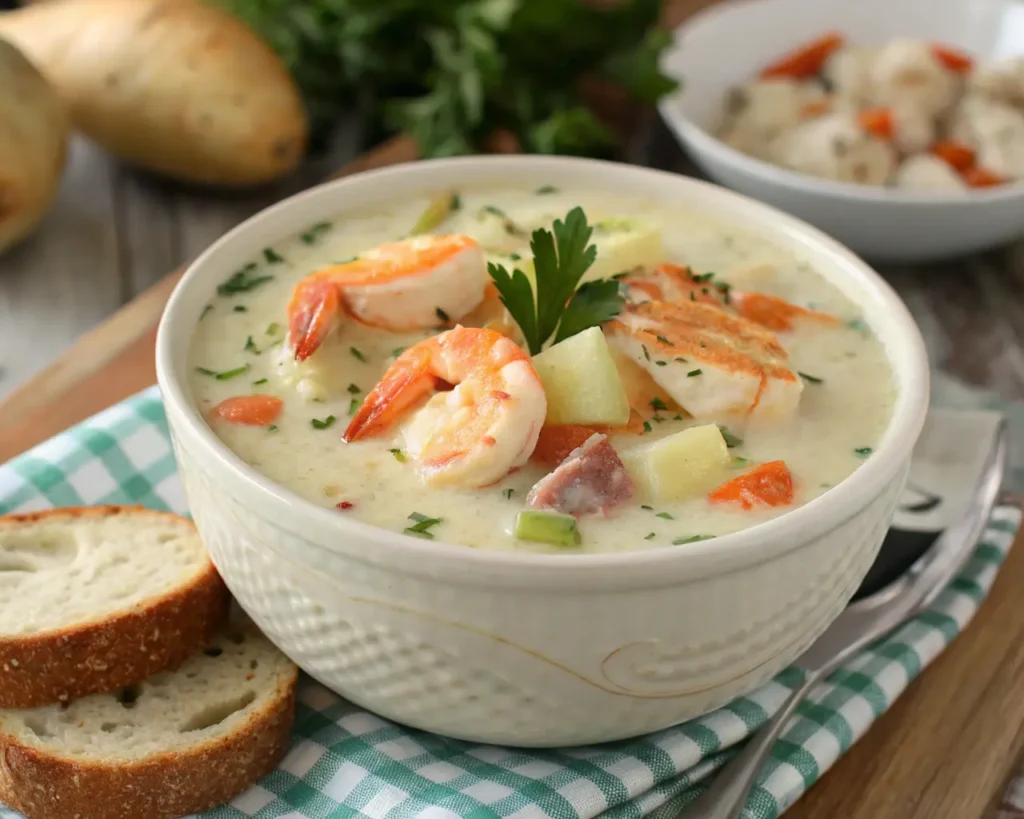
Frequently Asked Questions About Creamy Seafood Chowder
How long does homemade creamy seafood chowder take to prepare? Your chowder requires approximately 45-60 minutes from start to finish, including preparation and cooking time.
Can you prepare creamy seafood chowder in advance? Yes, you can make chowder up to two days ahead. Store refrigerated and reheat gently, adding liquid if needed.
What causes creamy seafood chowder to curdle? Curdling occurs when dairy heats too quickly or at excessive temperatures. Always add cream to cooled chowder and reheat gently.
How do you naturally thicken creamy seafood chowder? Mash some cooked potatoes in the chowder or create a cornstarch slurry with cold stock for natural thickening.
Your Journey to Chowder Mastery Begins Now
Mastering creamy seafood chowder transforms you into a keeper of culinary tradition while providing your family with restaurant-quality comfort food. This recipe connects you to coastal heritage while creating new memories around your dinner table.
The techniques you’ve learned extend beyond this single dish—these foundational skills improve your overall cooking abilities and confidence in the kitchen. Each time you prepare this chowder, you’ll discover small improvements and personal touches that make the recipe uniquely yours.
Start your chowder-making journey today by gathering fresh ingredients and dedicating an evening to creating this exceptional dish. Your family and friends will appreciate the love and effort you’ve invested, and you’ll gain satisfaction from mastering this timeless recipe.

